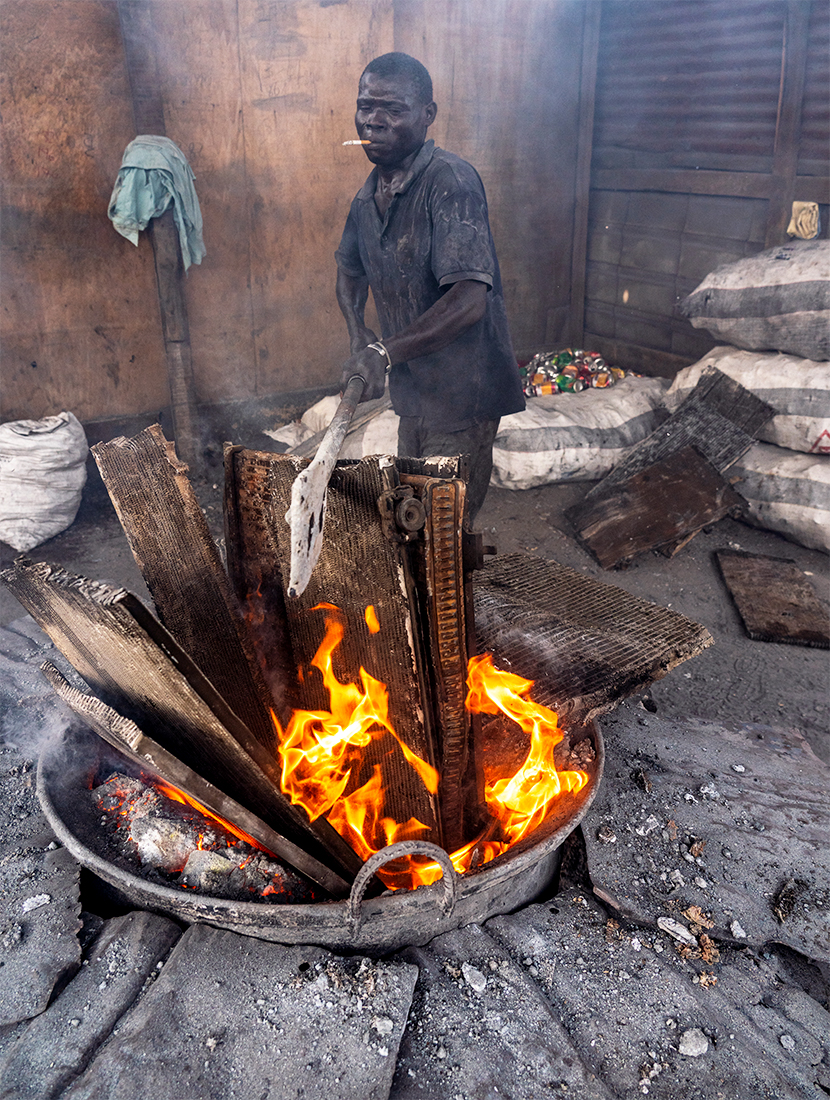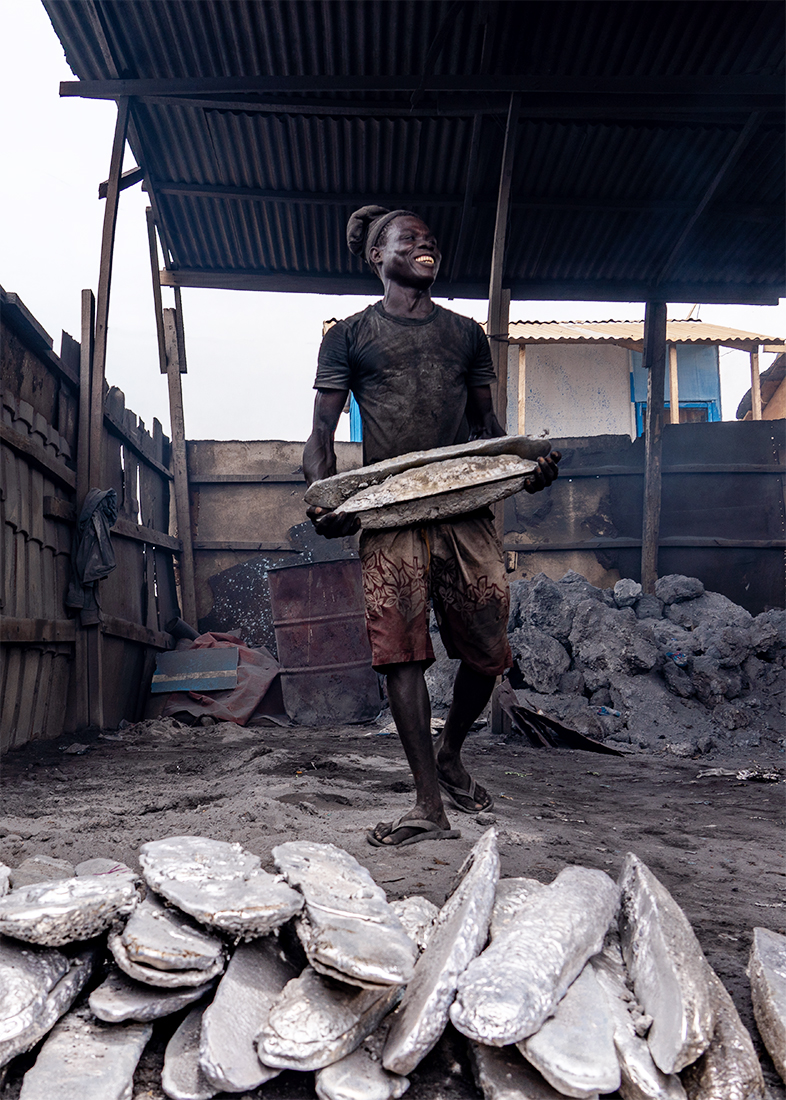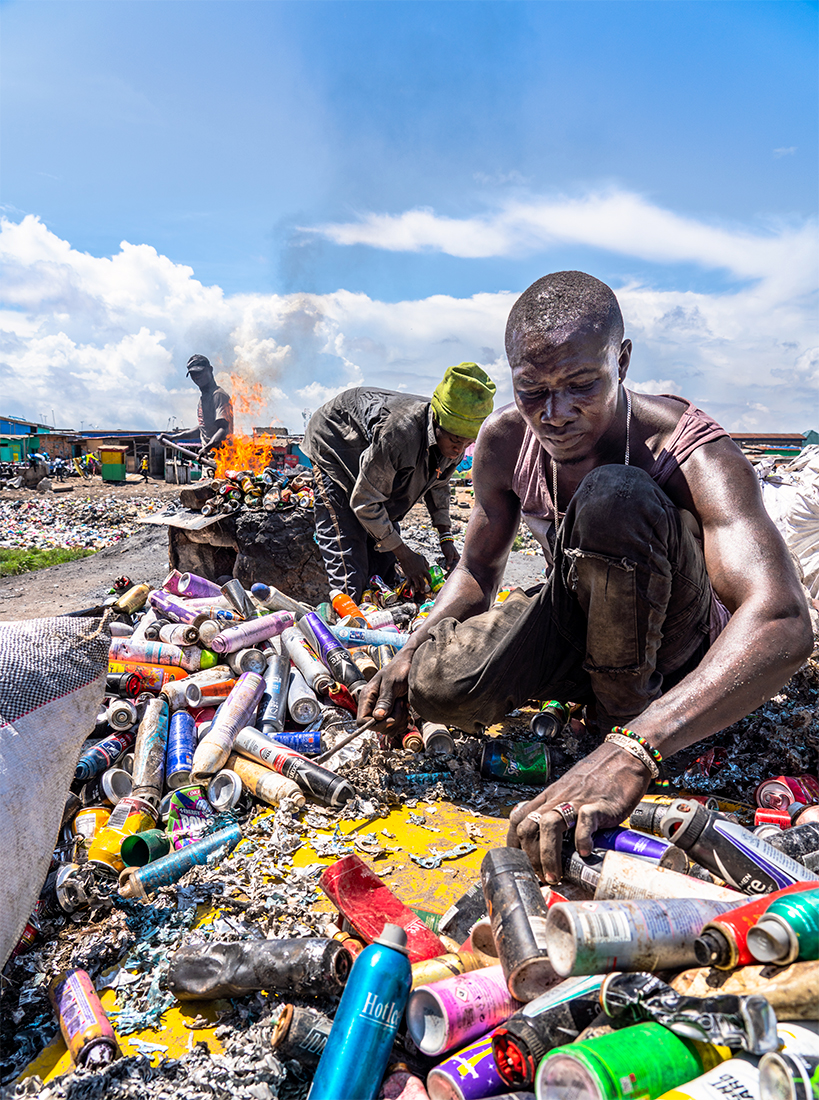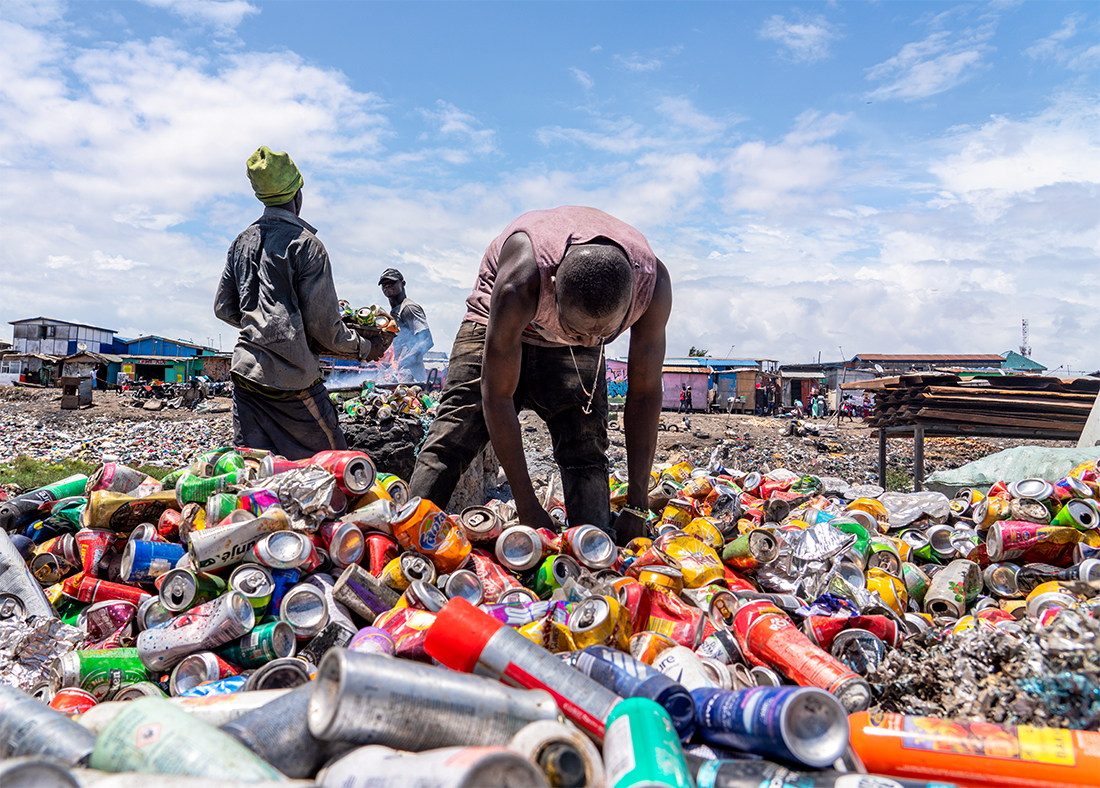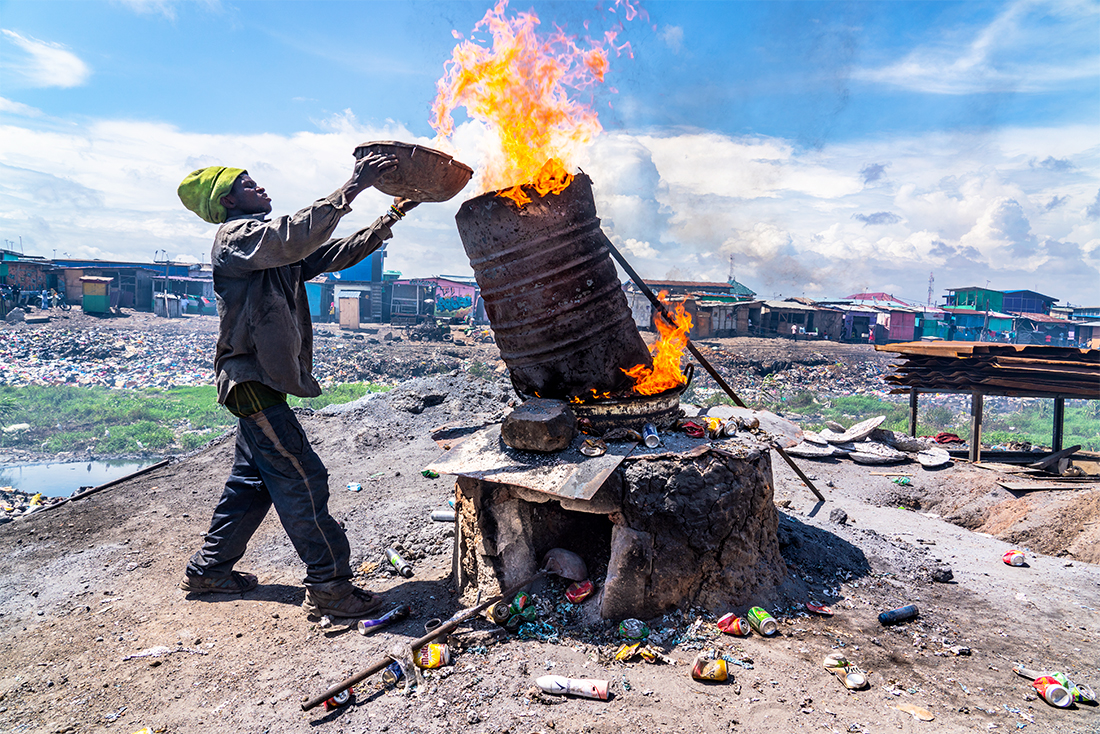2nd place
silver star award
Muntaka Chasant
ghana
title
Urban mining: Precious metal riches in cur cities
A group of urban poor men in low-income areas in Accra, Ghana's capital city, use open pit fire to melt scrap metals, including soda cans, aluminium perfume bottles, auto radiators, and air conditioner condenser fins found in the waste stream into molten metals. They are sold at around $0.50 per pound (as of June 2020) after they harden and cool, and are mainly used for making cookware.
According to the Health Effects Institute, more than 70 percent of people in Ghana use solid fuels such as charcoal and wood to cook food in open fires and leaky stoves.
Aluminium pots are the main cultural cookware in Ghana. They are used for cooking food on traditional stoves that mainly use charcoal as fuel.
This means that the cans in our trash, the radiators in junk cars, and condenser fins in dead air conditioners are helping to feed millions of people in Ghana.
But there are health and environmental risks to this. To the men involved, who are exposed to high concentrations of heavy metals, and to the consumers who eat food from cookware that are made from scrap metals.
I reached out to the Chemistry Department of Ashland University and Occupational Knowledge International on this, and we have teamed up to test for possible leaching of concentrations of metals such as lead, aluminium, cadmium, and arsenic, into food during the use of such cookware.
We hope to publish some academic work on this hopefully by the end of 2020.
back to gallery
entry description
Urban mining — reclaiming valuable materials in the waste stream — is seen as the new frontier in mineral exploitation.A group of urban poor men in low-income areas in Accra, Ghana's capital city, use open pit fire to melt scrap metals, including soda cans, aluminium perfume bottles, auto radiators, and air conditioner condenser fins found in the waste stream into molten metals. They are sold at around $0.50 per pound (as of June 2020) after they harden and cool, and are mainly used for making cookware.
According to the Health Effects Institute, more than 70 percent of people in Ghana use solid fuels such as charcoal and wood to cook food in open fires and leaky stoves.
Aluminium pots are the main cultural cookware in Ghana. They are used for cooking food on traditional stoves that mainly use charcoal as fuel.
This means that the cans in our trash, the radiators in junk cars, and condenser fins in dead air conditioners are helping to feed millions of people in Ghana.
But there are health and environmental risks to this. To the men involved, who are exposed to high concentrations of heavy metals, and to the consumers who eat food from cookware that are made from scrap metals.
I reached out to the Chemistry Department of Ashland University and Occupational Knowledge International on this, and we have teamed up to test for possible leaching of concentrations of metals such as lead, aluminium, cadmium, and arsenic, into food during the use of such cookware.
We hope to publish some academic work on this hopefully by the end of 2020.
about the photographer
Muntaka Chasant is a researcher, photojournalist, and professional documentary photographer based in Accra, Ghana. His research interests and photographic work straddle human geography and environmental sociology.back to gallery

